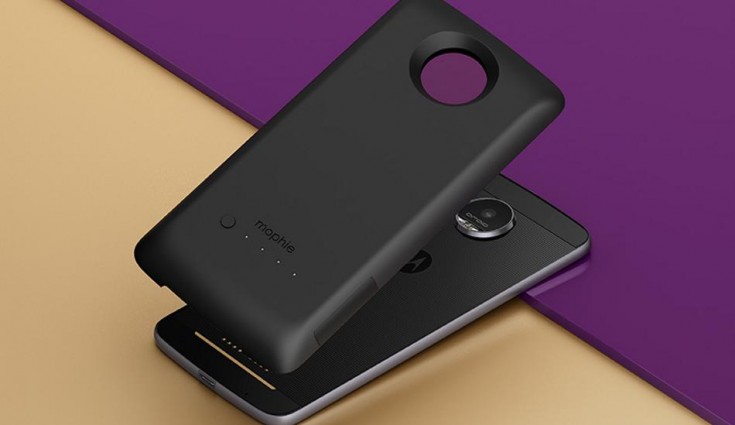Financial transactions, especially through mobile phones, have been rising since last year’s demonetisation scheme that denotified old Rs 500 and Rs 1000 notes, sucking out 86 percent of currency in circulation which forced people to rely on digital banking. The spurt in mobile banking apps, prepaid systems like e-wallets along with better awareness about digital banking has given a huge impetus to especially mobile phone transactions. With more and more people adopting smartphones, the trend seems to be heading northwards from here on.
Consider these points:
- As per available data (narendramodi.in), mobile wallet payments jumped 136 percent between August 2016 to August 2017 (from Rs 3,704 crore to Rs 7,262 crores), while in terms of volume there was an increase of 218 percent in the same period.
- The website says IMPS transactions rose 142% in terms of value in the same period while debit card transactions jumped by 93 percent in the same period.
- India’s smartphone user base is expected to cross 340 million by the end of this year, considering that expect more and more financial transactions through mobile in coming days.
However, not everyone is comfortable with the idea of using their smartphone for digital banking. Their apprehensions root from the fact that mobile phones are often in the news of getting hacked and stolen. The idea of some mischievous person using it for some seconds in your absence is enough to send a chill down the spine. So does that mean mobile phone banking is riskier than traditional PC based transactions? Before answering the question above, let’s first discuss how smartphone payment process is different from that on a desktop.
If you login to your bank account through a Browser like Internet Explorer, Firefox, Chrome etc, then the process is the same on both mobile phones and desktop. However, almost all banks now offer dedicated smartphone applications for their users using which you can login to your bank account and hence you do not have to open a browser every time – just download an App with a dedicated Password and it takes just a few clicks to pay.
The miniature size of the phone makes it easy to do banking anywhere and anytime, even while walking unlike in desktop. For desktops, no such apps are available. In phones, though you can download apps or can use the phone browser for net banking. Smartphone owners can also use wallet apps to for digital banking. The latest app like Samsung Pay allows one to make payments just by hovering the smartphone above the card reading machine.
These days, mobile phone payments can be done through multiple apps. For instance, Truecaller allows sending money, recharging mobile phone accounts and paying third parties from the contact app itself. Like Paytm, it allows paying just by scanning the QR code of the receiver. As far as security goes, similar levels of security options are available for both the platforms. In both, you can secure your account by a password and then opt for OTP to complete the transaction.
So which one is safer?
Typically, desktop users of Windows or a Mac have administrative rights and there are high chances of them installing a malware inadvertently that can compromise users’ bank details.
However, mobile platforms such as iOS and Android do not offer the user such high level of control over the device, hence this threat is greatly reduced as the user does not normally possess an elevated level of control over the device. To get elevated controls of mobile operating systems, one has to root or jailbreak the device which is usually done by developers and some enthusiasts. Mobile platforms have closed ecosystem and the apps available in their app stores are usually pre-checked.
So is mobile banking is fully secure?
No. Mobile banking faces a different set of challenges. Though smartphones come with a better ecosystem and platform, users have to be extra careful while downloading
apps. App stores are notorious for having bogus apps. Sometimes you will see more than a dozen apps of the same name. So users must download only the official banking/wallet app.
Also, apart from regularly updating the mobile software, users should also desist from using netbanking in a rooted device. “People need to be really careful while making financial payments through these payment apps, especially focusing on the source from where the apps are being downloaded needs to be reliable. People need to download apps only from reliable sources like the official App store, also they should avoid downloading or copying APK files,” says security software provider Kaspersky.
According to Kaspersky experts, many hackers download a popular app, put a malicious code into it and then put it back on the Android Play Store as a free copy of a popular app. “The most rampant way to compromise data on a mobile phone is downloading free applications. Any app will ask for your permission to access phone data before you click on “accept” for installing the app. Over 70 percent of Android apps ask for permission for something that can prove risky for your mobile security.”
“Many of these malware applications look very genuine and people fall for it without reading the “terms and conditions”, which need to be checked before allowing the app to be downloaded to your handset. It is highly advisable for people to install a good security solution in their phones and systems,” advises Kaspersky.
In short, smartphone and desktop banking both offer you a way out of risks, by following really simple rules. Download apps/programs only from authorised vendors, don’t click on suspicious emails or too good to miss ‘offers’, and in case of smartphones, ensure that you use options like the screen lick and more that comes with every phone now. Just following these simple precautions, like washing your hands regularly, will probably decrease your odds of falling prey to any ills of mobile banking by a huge margin.


